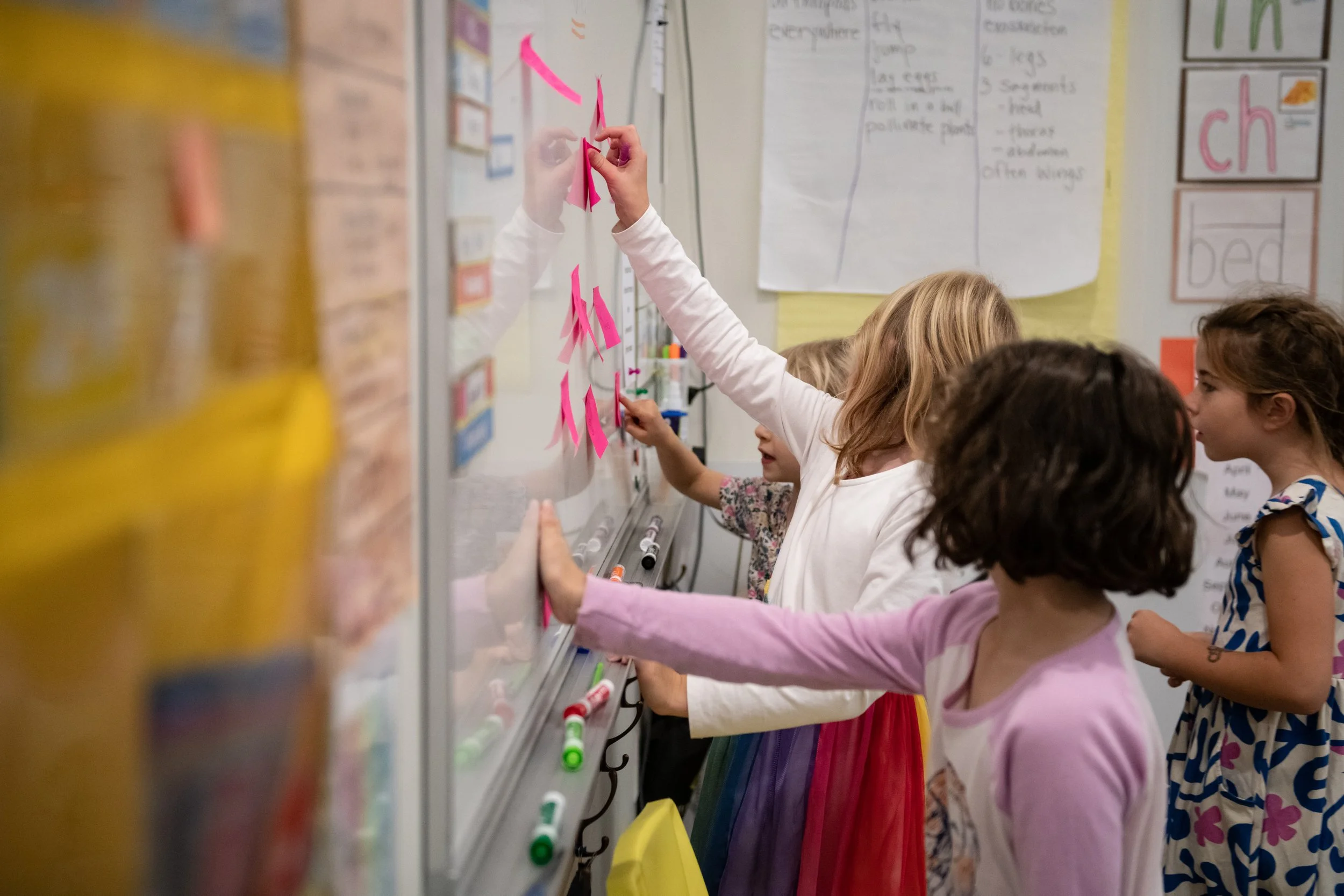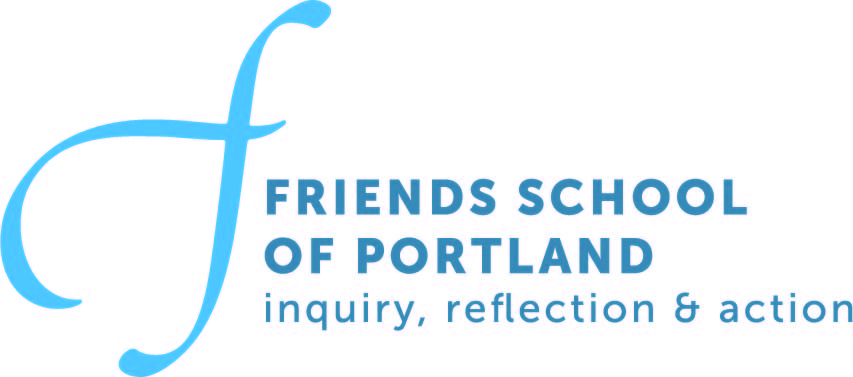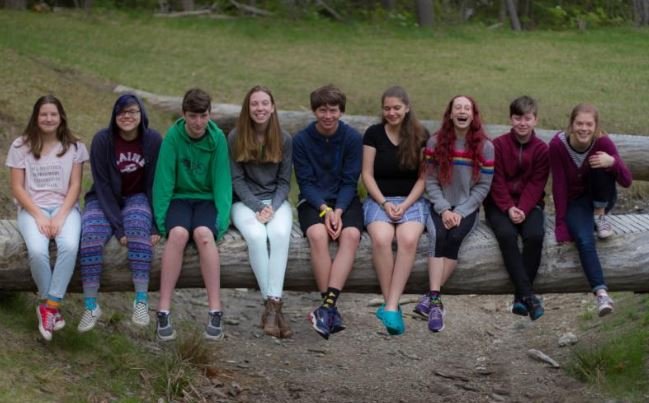
Grades 1-4
As students enter the elementary grades, social development within a classroom community continues to be the foundation of learning; teachers support students as they negotiate building friendships, sharing, and working in groups. Students deepen their engagement with concepts of justice and love that extend ever wider into the world. Students begin to engage in increasingly complex academic work as they build on a strong foundation in number sense and literacy and increasingly use academic skills as essential tools in their work to understand themselves, one another, and their world.
Grades 1-2
Year 1: How do choices we make affect our community?
Year 2: How do individuals contribute to their communities?
A structure of two teachers in each small first-second grade class allows for differentiation and individualization as children grow into fluent readers, writers, and mathematicians. Through the use of rich literature, real-life problems, and plenty of play, both indoors and out, teachers guide students in their acquisition of these foundational concepts, skills, and habits.
Grades 3-4
Year 1: What is the power of a story?
Year 2: How do we shape our environments? How do our environments shape us?
Third and fourth graders are ready to put their newly developing academic skills to use as they explore the world around them. Integrated units of study guided by essential questions engage students in learning through field studies, experiments, trips, and plenty of outdoor time. Through an inquiry- based approach, they continue to develop skills and habits of mathematical reasoning, close reading, and clear writing.
-
Upcoming Admissions Events
-
Our Campus
-
After FSP





